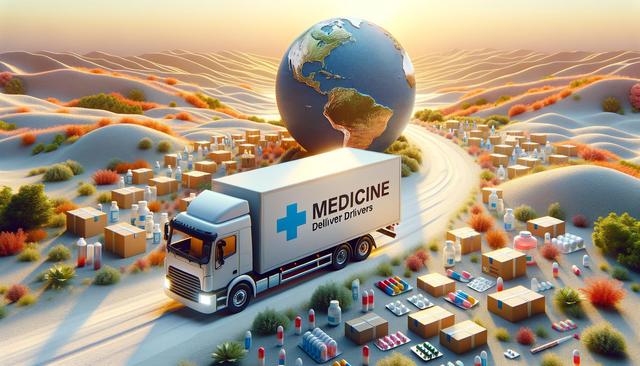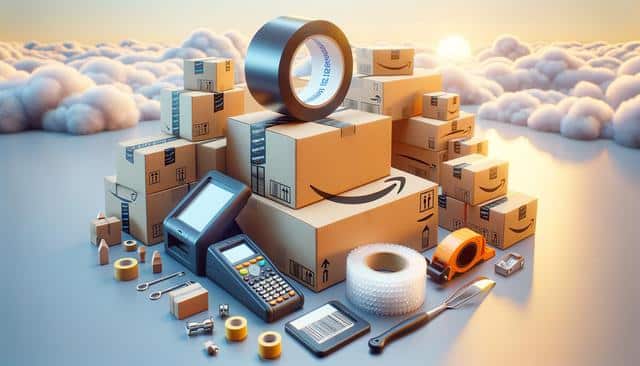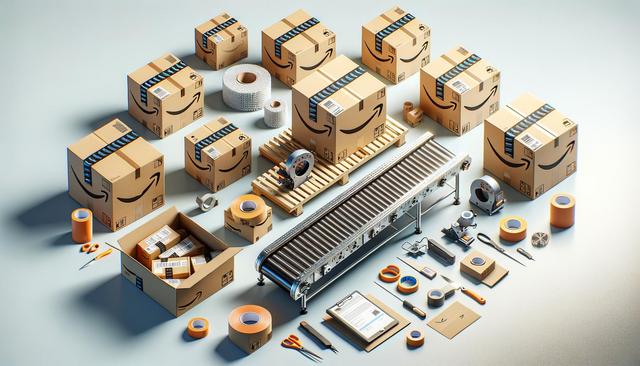
Drive the Future of Global Healthcare Logistics from Anywhere
The Evolving Role of Medicine Delivery Drivers in a Global Context
As healthcare systems become increasingly interconnected, the role of medicine delivery drivers for global companies has expanded beyond local distribution. These drivers now operate as vital links in complex international supply chains that ensure life-saving medications reach patients wherever they are. Their responsibilities are no longer limited to transporting packages from one location to another; they are now essential contributors to global healthcare logistics. In many emerging markets, these professionals are often the most reliable means of accessing critical treatments, especially in remote or underserved regions.
The demand for consistent and timely delivery of pharmaceuticals has grown due to increased globalization, aging populations, and the rise of telemedicine. Global companies are investing in more agile logistics operations, and medicine delivery drivers are on the front lines of this transformation. Their role includes not only delivery but also verifying proper storage conditions, handling sensitive medical supplies, and ensuring compliance with international regulations.
Technology and Remote Coordination in Global Delivery Operations
Modern medicine delivery drivers are empowered by technology that allows them to coordinate across borders seamlessly. With advanced tracking systems, mobile apps, and real-time communication platforms, drivers can monitor delivery routes, respond to changes instantly, and maintain compliance with global standards. These systems also provide transparency, which is crucial in the pharmaceutical industry where delays or errors can have critical consequences.
Key technological tools used by global delivery drivers include:
- GPS-enabled route optimization software
- Temperature and humidity monitoring sensors for sensitive goods
- Digital signatures and blockchain for secure record-keeping
- Inventory and dispatch management apps
These tools allow delivery drivers to work from virtually anywhere while maintaining high standards of efficiency and accountability, making remote coordination a feasible and increasingly common practice in healthcare logistics.
Skills and Training Required for Medicine Delivery Professionals
Delivering medicine globally is not a simple logistics task. It requires a specific skill set and continuous training to adapt to evolving challenges. Drivers must be knowledgeable about the handling of medical products, including those that require cold chain logistics or are classified as hazardous materials. Understanding local and international health regulations is also critical, particularly when navigating customs or delivering across borders.
Important skills for global medicine delivery drivers include:
- Familiarity with international shipping documentation
- Awareness of storage and handling standards for pharmaceuticals
- Effective communication across languages and cultures
- Problem-solving abilities in unpredictable environments
Many global companies offer structured training programs and certifications to ensure their drivers meet quality and safety standards. This investment in professional development reflects the increasing complexity and importance of the role.
Challenges and Opportunities in Global Healthcare Logistics
Despite the many advancements, medicine delivery drivers for global companies face a range of challenges. These include varying infrastructure quality across regions, political instability, and strict regulatory environments. Unexpected situations such as natural disasters, public health emergencies, or geopolitical tensions can disrupt supply chains and put additional pressure on delivery operations.
However, these challenges also present opportunities for innovation and growth. Companies are exploring new delivery models, such as drone-based distribution in remote areas or decentralized warehousing to reduce transit times. Medicine delivery drivers are often at the forefront of these pilot programs, testing and refining solutions that could redefine how global healthcare is accessed.
Moreover, the increasing recognition of their role opens up new career pathways. As more organizations embrace sustainable and tech-driven logistics, drivers can specialize in areas such as fleet coordination, compliance auditing, or training for new recruits, contributing to a more resilient and responsive healthcare ecosystem.
How to Start a Career in Global Medicine Delivery
For individuals interested in joining the global healthcare logistics sector, becoming a medicine delivery driver offers a unique opportunity to make a meaningful impact. Entry into the field typically requires a valid driver’s license, a clean driving record, and a basic understanding of logistics. However, global companies often look for candidates with additional qualifications, such as experience in healthcare or logistics, multilingual capabilities, or certifications in handling medical products.
To begin a career in this field, consider the following steps:
- Research companies that operate internationally in the pharmaceutical logistics space
- Pursue relevant training or certifications, such as Good Distribution Practice (GDP)
- Develop technological proficiency with delivery and logistics platforms
- Highlight any experience with compliance, healthcare, or cross-border operations
With the right preparation, candidates can position themselves as valuable contributors to global health initiatives. The ability to work remotely or across regions also adds flexibility and long-term career potential to the role.
Conclusion: Driving the Future of Healthcare Access
Medicine delivery drivers for global companies play a critical role in shaping the future of healthcare logistics. They are more than just transporters—they are highly trained professionals who ensure the safe, timely, and compliant delivery of medications to those who need them most. As technology and global connectivity continue to evolve, these drivers will remain essential in bridging the gap between pharmaceutical providers and patients worldwide. For those seeking a purposeful and dynamic career, this path offers the chance to truly drive the future of healthcare logistics from anywhere.


